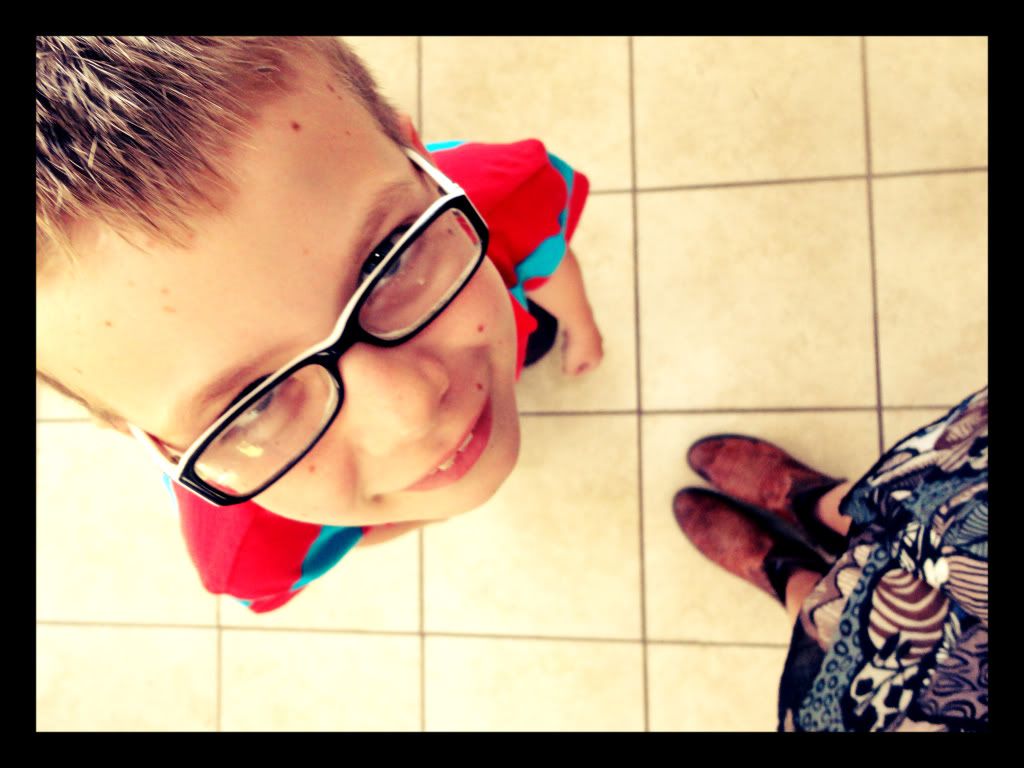Saturday, January 28, 2012
Thoughts on Limits / Pensamientos sobre Límites
Kids will always push boundaries, looking for limits. I, as a mama, always look for healthy ways to set them. I truly believe, from the bottom of my heart, that limits set strongly, clearly and lovingly are one of the most important ways of expressing love for your child. To me, "loving limits" means learning how to give a big, fat, clear "NO" without emotion. When I say "without emotion" I´m not talking about the "Luke, I am your father" type of lack of emotion. Rather more like learning how to not get hooked on the waves of frustration, anger, guilt (amoung other emotions) that can easily rise with the exhaustion and helplessness a parent can feel at times. TOTALLY NORMAL. I don´t think there is a parent on this planet that has never felt like screaming his or her head off, while feeling it would clearly rotate on it´s axis if it were humanly possible.
Los niños siempre buscarán maneras de probar los límites. Yo, como mamá, siempre busco maneras sanas de poner límites. Creo, desde el fondo de mi corazón, que los límites puestos con claridad, fuerza y amor es una de las maneras más importantes de expresarle amor a nuestros hijos. Para mi "límite amoroso" significa aprender a dar un rotundo "NO" sin emoción. Cuando digo "sin emoción" no me refiero la ausencia de emoción al estilo "Luke, yo soy tu padre". Es más como aprender a no engancharse a las olas de frustración, enojo, culpa (entre otras emociones) que fácilmente pueden surgir con el agotamiento y la impotencia que un padre puede llegar a sentir. TOTALMENTE NORMAL. No creo que exista un padre sobre la faz de esta tierra que jamás haya sentido ganas de gritar hasta reventar, mientras queda claro que su cabeza rotaría sobre su propio eje si fuera humanamente posible.
A clear mind, helps to set healthy boundaries with a quiet heart. It gives you time to think before acting, therefore you are in control. I, personally, was not born with a clear mind. I´m half latin, half italian...I´ve got a screamer in me. But I decided that wasn´t the way I wanted to raise my kids, not only because it wouldn´t be fair to them, but because it would not bring me peace. Personally, ecuanimity , the capability of stepping back and breathing BEFORE I decide to act, is something that does not come naturally. I have practiced, and practiced. In short, I think "mommy-cool" is an emotional muscle we all have. Meaning we all have the capability to develope that muscle. Could you run a marathon without training? No. Well, the "mommy-cool" muscle doesn´t jump into action at full speed just cause we REALLY REALLY want it to. You gotta do the excercise. Then fail. And try again. Guess it´s better than not trying. Right? Start by trying to set an "easy" boundary without feeling a negative or guilt ridden emotion. We gotta start somewhere.
Una mente clara ayuda a fijar límites con el corazón tranquilo. Te da tiempo de pensar antes de actuar, y por lo tanto estás en control. Yo, personalmente no nací con una mente clara. Soy mitad latina, mitad italiana... un grito humano en potencia. Pero decidí que así no era como quería criar a mis hijos. No solo porque ellos no lo merecen, sino porque a mi no me daría paz. Personalmente, la ecuanimidad, la capacidad de dar un paso atrás ANTES de decidir actuar, no es algo que se me dé naturalmente. Lo he practicado y practicado. En corto, creo que la "mami-zen" es un músculo emocional que todos poseémos. Lo cual significa que todos tenemos la capacidad de desarrollar ese músculo. ¿Podrías correr un maratón sin entrenamiento? No. Pues el músculo de la "mami-zen" no entra en acción de un segundo a otro solo por que REALMENTE queremos que lo haga. Tienes que hacer el ejercicio. Fallar. Volverlo a intentar. Es mejor que ni siquiera intentarlo, ¿no? Empieza por intentar poner un límite que no te cuesta trabajo, sin sentir una emoción negativa o culpígena. Por algún lugar tenemos que empezar.
Last week I went to one of our Montessori "school for parents" nights. The theme was precisely: limits. I thought sharing my favorite pointers of the night would be a special way to get across where I´m at as a mamita, before saying goodbye for now:
La semana pasada fui a uno de nuestras reuniones de "escuela para padres" del Montessori. El tema fue precisamente: límites. Pensé que compartir mis puntos favoritos sería una linda manera de mostrar, antes de desearles un lindo día, dónde me encuentro ahora como mamita:
1. Limits well set turn into healthy habits, and this paves the road for a child with the capacity for self-regulation. Blind discipline only creates children that behave with "authority" present. Once they´re left alone (as eventually happens to us all as we grow) they no longer feel the need to continue to obey limits because there is no one to impose them anymore. That is where the importance of consecuences step in. A child must learn that there are always consecuences to every action. Good consecuences, bad consecuences, subtle consecuences, obvious consecuences. We must allow them to make decisions (consistent with their age), after being told what the consecuences would be depending on the path they choose, so that they can develop responsibility, that will in time allow them to self-regulate. Stick to the consecuences.
1. Los límites, claramente impuestos, se convierten en hábitos saludables, y esto a su vez crea un niñ@ con la capacidad de autoregularse. Disciplina ciega solo crea niñ@s que obedecen cuando la autoridad en cuestión está presente. Una vez solos (como eventualmente nos sucede a todos conforme vamos creciendo) ya no sienten la necesidad de obedecer límites ya que ya no hay nadie que los imponga. Aquí es donde sale a relucir la importancia de los límites. Un niñ@ debe aprender que siempre habrán consecuencias para cualquier acción. Consecuencias buenas, consecuencias malas, consecuencias imperceptibles, consecuencias notables. Debemos permitirles que tomen decisiones (coherentes para su edad), después de decirles qué consecuencias habrían dependiendo del camino que escojan, para que puedan desarrollar la responsabilidad que con el tiempo les permitirá autoregularse. Apéguense a las consecuencias.
2. Children need parents. They need their parents to be parents, not their friends. This isn´t terrible. A parent is not only the person who sets boundaries, but also the person that keeps them safe, orients them, listens, has warm hugs and kisses that can make any boo-boo or broken heart better just by being there. There is no love like mama´s and papa´s.
2. Los niñ@s necesitan padres. Necesitan que sus padres sean sus padres, no sus amigos. Esto no es terrible. Un padre o madre no solo es la persona que impone límites, sino también la que los mantiene seguros, los orienta, los escucha, la que les da abrazos y besos que pueden mejorar cualquier boo-boo o corazón roto por simplemente existir. No hay amor como el de mamá y papá.
3. Children want to feel loved. They want to feel they belong. They want attention. Give them positive attention so that they won´t go looking for your negative attention. Remember that the "bad" things they do sometimes get our attention faster than the "good" things. They´ll go looking for the "bad" if they need to.
3. Los niñ@s quieren sentirse amados. Quieren sentir que pertenecen. Quieren atención. Denles atención positiva para que no busquen atención negativa. Recuerden que las "cosas malas" que hagan, a veces llaman nuestra atención más rápidamente que las "cosas buenas". Irán a buscar "cosas malas" que hacer si es necesario.
4. Look at their attitude as a symptom. Ask yourself: is there something going on in my child´s life, home, school, family right now that could be leading him to act this way? Does he need help? AND always ask yourself, "HOW AM I feeling when I set limits?" (and we´re back to the very first paragraph of all this bla-bla)
4. Consideren sus actitudes como simptomas. Pregúntate: ¿hay algo que pueda estar sucediendo en la vida, casa, escuela, familia de mi hij@ que lo pueda estar llevando a actuar de esta forma? ¿Necesita ayuda? Y siempre pregúntate, "¿Cómo me estoy sintiendo YO al poner límites?" (y estamos de regreso en el primer párrafo de todo este bla-bla)
5. Not getting what one wants causes frustration. It is very important for our children to develop tolerance to frustration. The only thing that helps develop this tolerance is frustration itself (we can help ration the amount of frustration they must deal with all at once, depending on their age and circumstance).
5. No conseguir lo que uno quiere causa frustración. Es muy importante que nuestros hijos desarrollen tolerancia a la frustración. Lo único que ayuda a desarrollar esta tolerancia es la frustración misma (podemos ayudar a racionar la cantidad de frustración que tengan que afrontar de golpe, dependiendo de la edad y las circunstancias)
6. Acknowledge your child´s achievements, the positive consecuences he lives due to his own hard work.
6. Reconozcan los logros de sus hijos, las consecuencias positivas que vive como consecuencia de sus propios esfuerzos.
Subscribe to:
Post Comments (Atom)



Claudia, that is so true! Never thought of it as a muscle you have to train. This is one of my goals for this year, and your post is a great inspiration. A mommy cool muscle, I'm sure just thinking of it like that helps a bit in training it :)
ReplyDeleteThanks a lot,
Swenja
Ok, this picture is SO cute! But the words of wisdom...priceless. Thank you for taking the time to share.
ReplyDeletelovely thoughts and photos!
ReplyDeleteGreat tips, Clau. The clear head is the hardest part for me. It's so easy to get caught up in a moment. :)
ReplyDeleteditto! that´s why I have to practice, practice, practice and forgive myself when it doesn´t work out. Then practice again....
DeleteEl futuro de un adulto depende totalmente de los limites que tuvo en la niñez siempre he pensando que además de los limites hay que enseñar a los niños a ser totalmente independientes porque en casa podrán ser las personas más importantes y la mayor parte de lo que hacemos los padres gira en torno a nuestros hijos pero afuera.. en el mundo son solo un niño más!
ReplyDeleteGracias por compartir este tema friend !
Beautiful...love number 3.....Children choose their friends, not their parents, I have the wonderful hope that my children will bless me with thier friendship, and I work to earn that gift by being thier parent first....
ReplyDeletelove-ly... ♥ this comment!
Delete